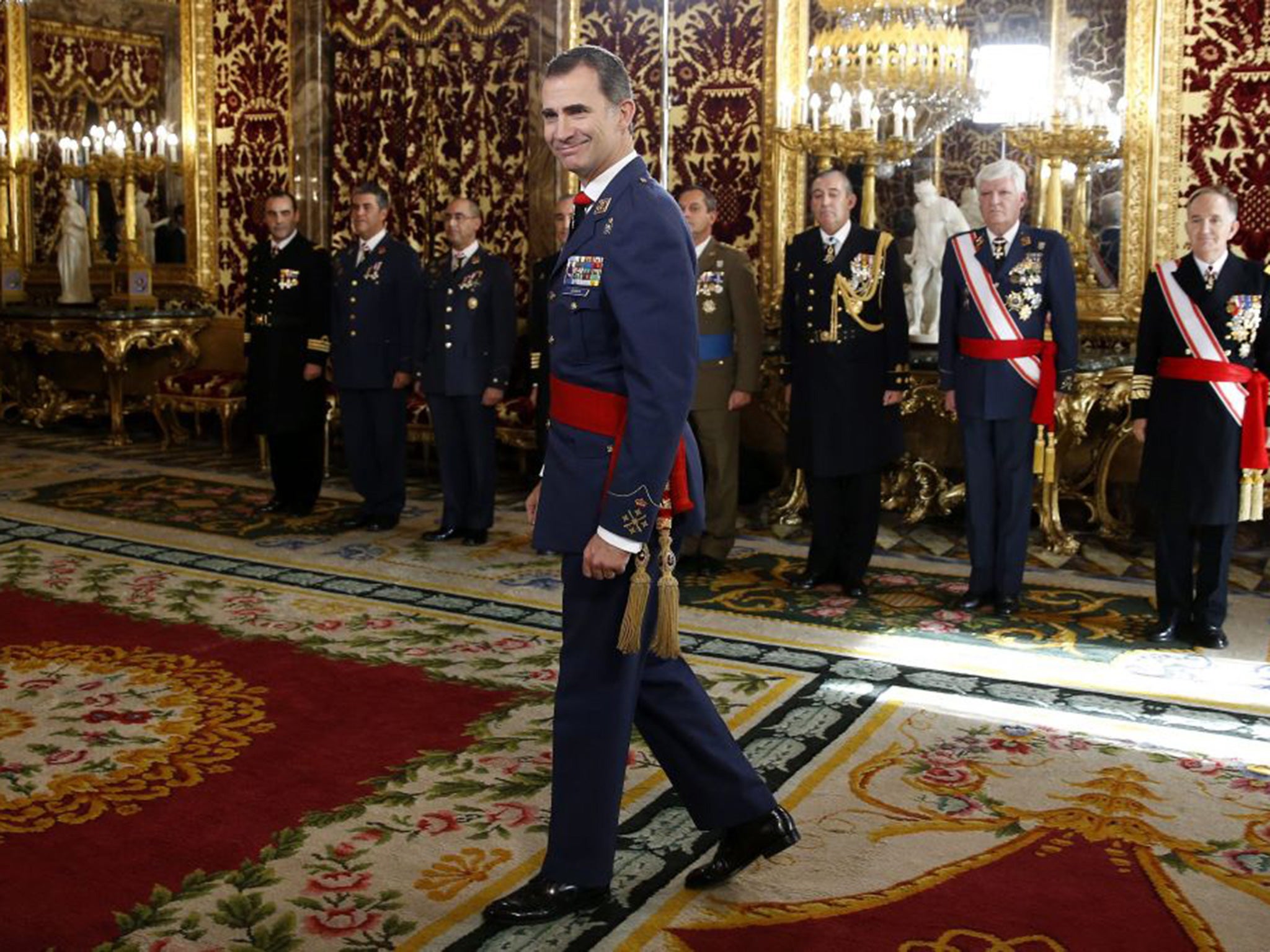Spanish election mess provides real test of fledgling monarch King Felipe VI
Corruption scandals involving Spain’s politicians have left them deeply unpopular, but Felipe has proved a likeable figure

Your support helps us to tell the story
From reproductive rights to climate change to Big Tech, The Independent is on the ground when the story is developing. Whether it's investigating the financials of Elon Musk's pro-Trump PAC or producing our latest documentary, 'The A Word', which shines a light on the American women fighting for reproductive rights, we know how important it is to parse out the facts from the messaging.
At such a critical moment in US history, we need reporters on the ground. Your donation allows us to keep sending journalists to speak to both sides of the story.
The Independent is trusted by Americans across the entire political spectrum. And unlike many other quality news outlets, we choose not to lock Americans out of our reporting and analysis with paywalls. We believe quality journalism should be available to everyone, paid for by those who can afford it.
Your support makes all the difference.He was once best known as a member of Spain’s sailing team in the 1992 Barcelona Olympics and is one of Europe’s least experienced monarchs.
But barely 18 months after he was crowned, Spain’s King Felipe VI faces a constitutional crisis if the country’s political parties cannot resolve the mess caused by Sunday’s inconclusive general election.
Felipe, Europe’s youngest monarch, became king in June last year when his father, Juan Carlos, abdicated. Under the Spanish constitution, he must nominate a prime ministerial candidate when parliament reconvenes on 13 January.
In past elections, that job has been straightforward: Spain’s electoral system is skewed in favour of larger parties and for 40 years since democracy was restored it has always returned single party governments.
But Sunday’s vote produced a fragmented parliament, with both traditional parties – the right wing Popular Party (PP) and the socialist PSOE – well short of a majority.
The 69 seats taken by the leftist Podemos, and lesser victories by smaller and regional parties, means the only simple alliance would be between the rival PP and PSOE – a previously unthinkable grand coalition.
It means that the inexperienced and untested 47-year-old Felipe, whose role under Spain’s constitution is largely symbolic, must nominate a prime ministerial candidate who may then fail to win the support of parliament.
A mis-step could undermine the monarchy, which played a key role in the transition to democracy after Franco in 1978 but whose existence many Spaniards still question.
Mariano Rajoy, the current prime minister and PP leader – having won most votes and seats – will be first to try to form a governing coalition or alliance. But his harsh public spending cuts and Spain’s 21 per cent unemployment rate make him a potentially toxic political partner.
The PSOE and Podemos both say they would vote against Mr Rajoy. On the left, PSOE, Podemos and a smaller leftist Catalan party could almost reach the 176 seats needed for a majority, but the Catalans would certainly insist on a binding referendum on their independence.
For the king, whose principal job is to safeguard the constitution, Catalan independence would be difficult to accept.
Felipe must now find common ground before 13 January. “When the election results are not so clear... the king plays a decisive role in resolving the governmental crisis,” according to Antonio Bar Cendón, a professor of constitutional law, who wrote on the subject in 1996.
If no candidate can win an overall majority, a minority prime minister may emerge, but may quickly fall, leading to fresh elections.
Felipe has proved a popular figure since becoming king. Corruption scandals involving Spain’s politicians have left them deeply unpopular, and a poll for El Pais suggested that some 75 per cent would be happy for the king to push political parties to agree on issues of national importance.
Join our commenting forum
Join thought-provoking conversations, follow other Independent readers and see their replies
Comments